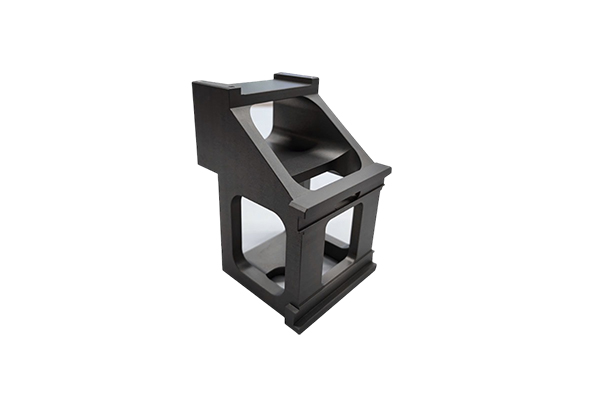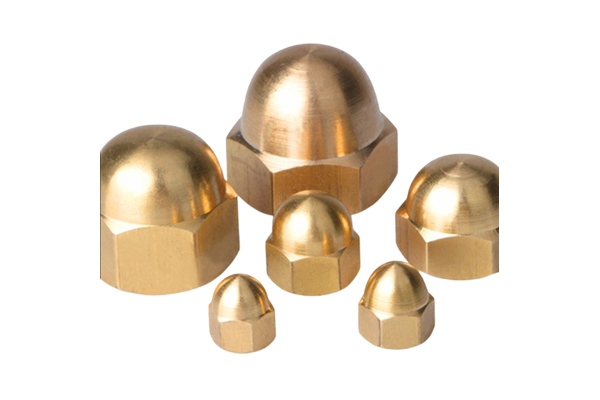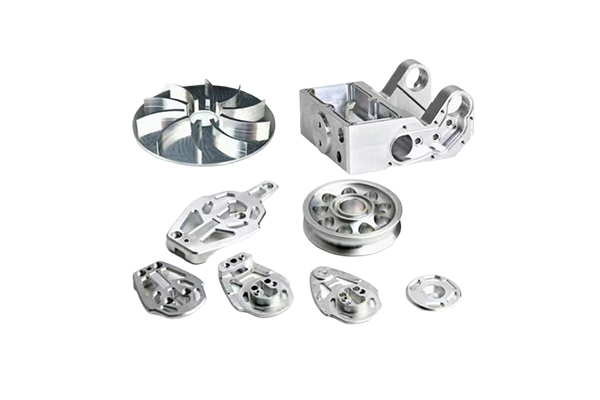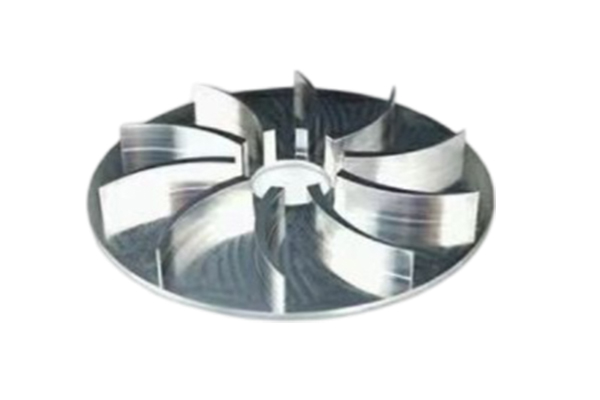What is the role of semiconductor equipment precision parts in intelligent manufacturing?
Release Time : 2025-07-24
With the rapid development of Industry 4.0 and intelligent manufacturing, the semiconductor industry, as a core area of high-tech industry, is undergoing profound changes. In this process, semiconductor equipment precision parts play a vital role. These parts not only determine the performance and precision of semiconductor manufacturing equipment, but also play a key role in promoting the application and development of intelligent manufacturing technology.
1. High precision and consistency: the foundation of intelligent manufacturing
The core of intelligent manufacturing is to improve production efficiency and product quality through automation, informatization and intelligent means. And the basis of all this is the high precision and consistency of equipment. Semiconductor equipment precision parts are usually used in key equipment such as lithography machines, etching machines, and deposition equipment. These parts need to meet micron or even nanometer precision requirements.
2. Intelligent sensor integration: real-time monitoring and feedback
An important feature of intelligent manufacturing is that the equipment can self-monitor and optimize. To achieve this goal, many semiconductor equipment precision parts integrate intelligent sensors to realize real-time monitoring and data collection of the equipment's operating status. These sensors can detect multiple parameters such as temperature, pressure, vibration, etc., and transmit data to the central control system.
Through data analysis, the system can detect potential problems in time and take preventive measures to avoid equipment failure or downtime. For example, in etching equipment, sensors in precision parts can monitor the concentration and temperature of the etching solution to ensure the stability of the etching process. Once an abnormality is detected, the system automatically adjusts the process parameters to maintain the best working state. This real-time monitoring and feedback mechanism greatly improves production efficiency and extends the service life of the equipment.
3. Modular design: flexible configuration and rapid response
Intelligent manufacturing emphasizes the flexibility and scalability of production to cope with market changes and technological advances. Semiconductor equipment precision parts usually adopt modular design, so that the equipment can be flexibly configured according to different production needs. For example, some precision parts can be quickly switched between different process steps, thereby achieving seamless connection of multiple processes.
Modular design also supports rapid maintenance and upgrading of equipment. When a part fails, maintenance personnel can quickly replace the faulty module without disassembling the entire equipment. This not only shortens downtime, but also reduces maintenance costs. In addition, with the development of new technologies, new precision parts can be easily integrated into existing equipment to further enhance the performance and functionality of the equipment.
4. Automated assembly and debugging: improve production efficiency
Intelligent manufacturing requires not only that production equipment has a high degree of automation capabilities, but also that the production process itself be automated. The manufacturing and assembly process of semiconductor equipment precision parts also requires a high degree of automation. Advanced robotics and automated production lines can achieve efficient production and precise assembly of precision parts.
5. Data-driven optimization: continuous improvement and innovation
Intelligent manufacturing relies on the collection, analysis and application of a large amount of data. The data generated by semiconductor equipment precision parts throughout the production process provides valuable resources for equipment optimization. Through in-depth analysis of these data, companies can find bottlenecks and improvement points in equipment operation, and then optimize production processes and equipment performance.
6. Collaborative operation: improve overall efficiency
In an intelligent manufacturing environment, close collaboration is required between various devices and systems to maximize overall efficiency. Semiconductor equipment precision parts plays a vital role as a bridge connecting various subsystems. For example, in a complete semiconductor production line, from wafer cleaning, lithography, etching to packaging and testing, each link requires the support of precision parts.
Through the coordinated operation of precision parts, various devices can be seamlessly connected to form an efficient production chain. For example, precision parts in wafer transfer systems can ensure the smooth transfer of wafers between various processes and reduce production interruptions caused by transmission problems. In addition, the high reliability of precision parts also ensures the stable operation of the entire production line and reduces the risk of unexpected downtime.
Semiconductor equipment precision parts play an indispensable role in intelligent manufacturing. They greatly improve the performance and efficiency of semiconductor manufacturing equipment by providing high precision, intelligent monitoring, modular design, automated assembly, data-driven optimization and collaborative operations. With the continuous advancement of intelligent manufacturing technology, precision parts will continue to play an important role in promoting the high-quality development of the semiconductor industry.
1. High precision and consistency: the foundation of intelligent manufacturing
The core of intelligent manufacturing is to improve production efficiency and product quality through automation, informatization and intelligent means. And the basis of all this is the high precision and consistency of equipment. Semiconductor equipment precision parts are usually used in key equipment such as lithography machines, etching machines, and deposition equipment. These parts need to meet micron or even nanometer precision requirements.
2. Intelligent sensor integration: real-time monitoring and feedback
An important feature of intelligent manufacturing is that the equipment can self-monitor and optimize. To achieve this goal, many semiconductor equipment precision parts integrate intelligent sensors to realize real-time monitoring and data collection of the equipment's operating status. These sensors can detect multiple parameters such as temperature, pressure, vibration, etc., and transmit data to the central control system.
Through data analysis, the system can detect potential problems in time and take preventive measures to avoid equipment failure or downtime. For example, in etching equipment, sensors in precision parts can monitor the concentration and temperature of the etching solution to ensure the stability of the etching process. Once an abnormality is detected, the system automatically adjusts the process parameters to maintain the best working state. This real-time monitoring and feedback mechanism greatly improves production efficiency and extends the service life of the equipment.
3. Modular design: flexible configuration and rapid response
Intelligent manufacturing emphasizes the flexibility and scalability of production to cope with market changes and technological advances. Semiconductor equipment precision parts usually adopt modular design, so that the equipment can be flexibly configured according to different production needs. For example, some precision parts can be quickly switched between different process steps, thereby achieving seamless connection of multiple processes.
Modular design also supports rapid maintenance and upgrading of equipment. When a part fails, maintenance personnel can quickly replace the faulty module without disassembling the entire equipment. This not only shortens downtime, but also reduces maintenance costs. In addition, with the development of new technologies, new precision parts can be easily integrated into existing equipment to further enhance the performance and functionality of the equipment.
4. Automated assembly and debugging: improve production efficiency
Intelligent manufacturing requires not only that production equipment has a high degree of automation capabilities, but also that the production process itself be automated. The manufacturing and assembly process of semiconductor equipment precision parts also requires a high degree of automation. Advanced robotics and automated production lines can achieve efficient production and precise assembly of precision parts.
5. Data-driven optimization: continuous improvement and innovation
Intelligent manufacturing relies on the collection, analysis and application of a large amount of data. The data generated by semiconductor equipment precision parts throughout the production process provides valuable resources for equipment optimization. Through in-depth analysis of these data, companies can find bottlenecks and improvement points in equipment operation, and then optimize production processes and equipment performance.
6. Collaborative operation: improve overall efficiency
In an intelligent manufacturing environment, close collaboration is required between various devices and systems to maximize overall efficiency. Semiconductor equipment precision parts plays a vital role as a bridge connecting various subsystems. For example, in a complete semiconductor production line, from wafer cleaning, lithography, etching to packaging and testing, each link requires the support of precision parts.
Through the coordinated operation of precision parts, various devices can be seamlessly connected to form an efficient production chain. For example, precision parts in wafer transfer systems can ensure the smooth transfer of wafers between various processes and reduce production interruptions caused by transmission problems. In addition, the high reliability of precision parts also ensures the stable operation of the entire production line and reduces the risk of unexpected downtime.
Semiconductor equipment precision parts play an indispensable role in intelligent manufacturing. They greatly improve the performance and efficiency of semiconductor manufacturing equipment by providing high precision, intelligent monitoring, modular design, automated assembly, data-driven optimization and collaborative operations. With the continuous advancement of intelligent manufacturing technology, precision parts will continue to play an important role in promoting the high-quality development of the semiconductor industry.







